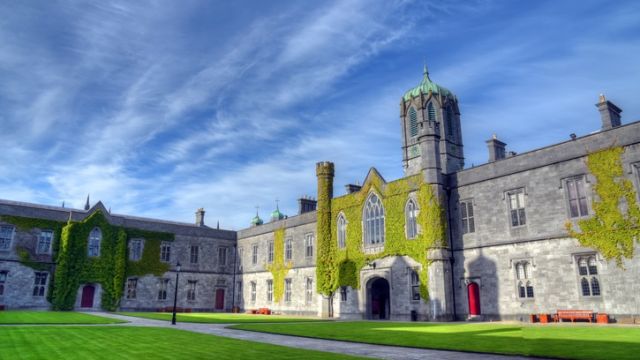Postgraduate students at NUI Galway (NUIG) are refusing to carry out the university’s required 120 hours of unpaid teaching, with the Postgraduate Workers Alliance NUIG describing it as “exploitative and unjust”.
In a letter addressed to NUIG’s President Prof Ciarán Ó hÓgartaigh, Minister for Higher Education Simon Harris and Michael D. Higgins, president of Ireland, the Postgraduate Workers Alliance said that “we have no option but to make it clear that we do not recognise any expectation of unpaid work as legitimate”.
“We hereby declare our intention to refuse to carry out any work which is not remunerated at the existing collectively bargained rate.”
The letter has been prepared in response to an email sent by NUIG’s Dean of Graduate Studies Dónal Leech to postgraduate students last Wednesday regarding the reopening of campus and the return of research students to the college to fulfil their “unpaid teaching contribution”.
“This unpaid teaching contribution may be remote, online, or on-campus in a location occupied by other students (e.g. lecture theatre/room, laboratory, fieldwork etc)”, Leech wrote.
According to the university’s Guidelines for Research Degree Programmes, postgraduate students are required to commit a maximum of 120 hours of “unpaid teaching contribution” per year over the course of six semesters, or three academic years.
“Contributing to teaching is an integral part of the training of a research Master’s or PhD student. Teaching assists you in the acquisition of generic and transferable skills, and is an important element in the formation of a research graduate”, the guidelines say.
In a post on its Facebook page, the Postgraduate Workers Alliance said that Leech’s email put “the utter contempt NUIG management holds us in on plain display”.
“Supposedly a guidance on teaching during the coming year… it says NOTHING about PPE… and EVERYTHING about being ‘unpaid’”, it added.
In its letter – which is still collecting signatures and is due to be sent formally later this week – the Postgraduate Workers Alliance said that “the arrangements whereby postgraduates carry out teaching or related academic duties is exploitative and unjust during ‘normal’ times, and this unfairness is even more palpable given postgraduates are now expected to carry out these duties on the front lines of a global pandemic”.
The group added that “the question of unpaid work being required of postgraduates is disputed by SIPTU Academic Section” and deemed the requirement a breach of the European Researchers Charter, of which NUIG is a signatory.
The letter also argued that the 120 hours of unpaid teaching work breaches the declaration made by postgraduate students to the Revenue Commission that there will be “no element of service (directly or indirectly) between the sponsor and I or between the colleges/university and I”.
In an email to The University Times, Postgraduate Workers Alliance NUIG said the negotiations with individual schools had resulted in the eradication of unpaid teaching in two schools. “The problem is that this is a localised and provisory solution, the institutional policy is to rely on the unpaid work of postgraduates to do the teaching and grading”, it added.
On Twitter, Trinity’s PhD Workers Rights Group posted in support of postgraduates at NUIG: “This is blatant exploitation of research students. Teaching is WORK and must be paid. It is NOT contributing to a research student’s education.”
The Postgraduate Workers Alliance NUIG was set up in May to fight for better work and study conditions for postgraduate students attending NUIG. In recent weeks, it has hit out at the university for failing to communicate with postgraduate students about the college’s reopening and the provision of PPE for its teaching staff.
The college has also come under fire from its undergraduate students in recent weeks who were left disappointed after the university published spreadsheets indicating the percentage of hours students could expect to spend on campus compared to online in the coming semester.







